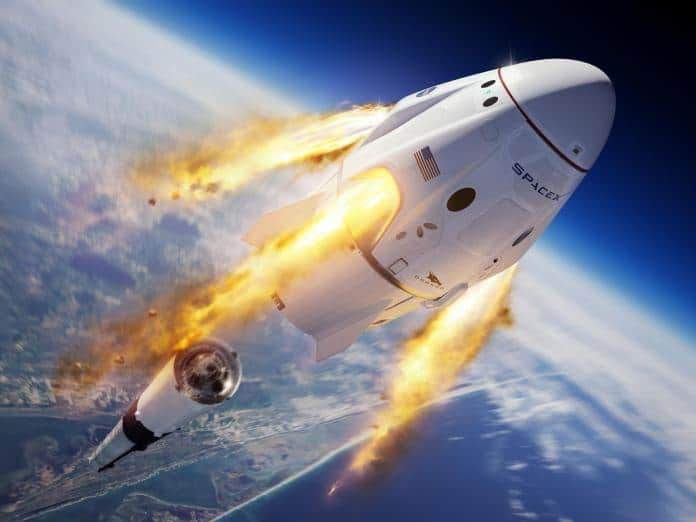U.S. Private Industry leaders are a model for “inserting speed” into the Pentagon
Friday, January 24, 2020
Categories: ASCF News National Preparedness Bipartisianship ASCF Articles

By Joy Votrobek, Sr. Research Analyst
American Security Council Foundation
January 23, 2020
The CSIS (Center for Strategic International Studies) released a podcast with General John E Hyten, Vice Chairman of the Joint Chiefs of Staff, and his exciting plans for inserting speed into the Pentagon.1 The U.S. military moves slowly in military readiness versus China and North Korea. He suggested that both China and North Korea “go fast” because of their consistent and coherent strategies. If they make mistakes, they don’t get bogged down in bureaucracy; instead, they make changes and try again. One of his goals as Vice Chairman is to inject speed into the Pentagon and Defense Contractors.
U.S. private industries lead the world because they build with speed and efficiency and try new approaches when others fail. U.S. private industries lead the way in software development and space launches. Space X is a good example. Even though they had a disastrous beginning in space launches, they made changes and tried again. Recently, Space X purposely blew up a missile launch to make sure it would release the capsule and propel rapidly away from the exploding rocket. The capsule successfully launched its thrusters and separated from the rocket, thus proving that Space X is ready to put humans the capsule and send them into space. Space X, NASA, and the U.S. Airforce have been working together to achieve this goal. A flight is planned for an early March lift off from Kennedy Space Center. Aboard Space X Falcon 9 rocket will be two astronauts heading to the International Space Station.2 American ingenuity and resilience at work in the private sector and a government agency.
General Hyten is impressed with American ingenuity and speed in numerous high tech sectors, such as Space X. He is less impressed with the speed of the Pentagon and defense contractors in getting the same high tech equipment and resilience together for the U.S. Military. China and North Korea are both moving ahead rapidly with their military readiness. The Chinese have had a military strategy of countering the U.S. and our allies with high-tech modernization since the mid-1990s.3
Unlike the United States, the Chinese military has access to all technology in China. State-Owned Enterprises (SOEs), which are bankrolled by state-owned banks, produce most of the technology for the military. However, many SOEs do not make a profit. The government is both a lender and a borrower and have subsidized the SOEs for years. The Chinese government is not accurately reporting their debt crisis; some unofficial figures put the debt higher than that of Japan and the United States. The SOEs are losing money, not making money, and the government continues to forgive their debt at a high price of debt to GDP. The Chinese government has not allowed reforms for a truly, free efficient enterprise system. Instead of Adam Smith’s idea of the “invisible hand” guiding commerce, the Chinese government's hand guides commerce for the interest of the state only.
Part of what makes America great is the free enterprise model as an incentive for success. The United States has private industries making a profit that are resilient and efficient. When these private industries agree to work with government agencies, such as Space X, NASA, and the U.S. Airforce, both parties thrive.
The Pentagon recently announced a plan to build one satellite per week. The plan is to orbit several dozen satellites into space by 2022 under the Space Development Agency. By 2026 there will be full global coverage for military readiness, including detecting and tracking hypersonic missiles. These satellites will weigh less and cost less, but also have less of a lifespan. The Pentagon is looking for enterprises that can be cost-efficient and on schedule.4 Time for American free enterprise leaders to step-up and bid on satellite solutions. Private industry leaders have an opportunity to make a profit and work with our government to surpass the competition and win the Cyber Space race.
1 CSIS (January 17, 2020) “A Conversation with General John Hyten, Vice Chairman of the Joint Chiefs of Staff” https://www.csis.org/events/conversation-general-john-hyten-vice-chairman-joint-chiefs-staff
2 Kelly, Emre (January 20, 2020). “As Planned, Space X rocket explodes after liftoff; Crew Dragon escapes.” Indian River Press Journal. Treasure Coast Newspapers. Page 2A.
3 Rinehart, Ian. (March 24, 2016) “The Chinese Military: Overview and Issues for Congress”. Pages 2, 8,9, and 11. https://fas.org/sgp/crs/row/R44196.pdf
4 Weisgerber, Marcus (January 21, 2020) “Pentagon wants to build one satellite per week.” Defenseone.com. Retrieved on January 23, 2020, at https://www.defenseone.com/technology/2020/01/pentagon-wants-build-one-satellite-week/162548/
Photo: Picture courtesy of fr24news.com https://www.fr24news.com/2020/01/spacex-live-blog-launch-latest-updates-as-falcon-9-rocket-explodes.html











